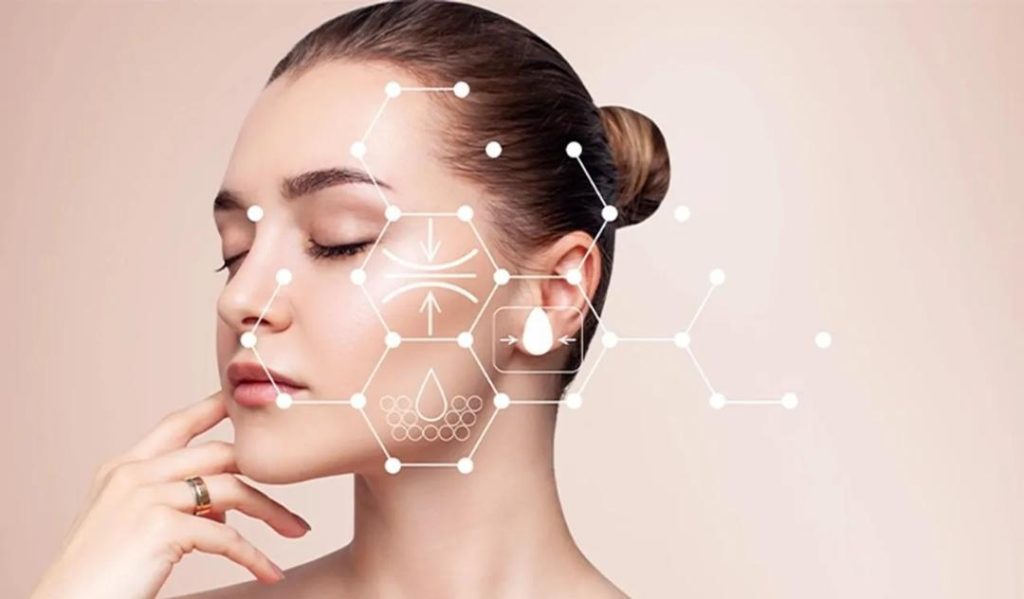
How AI & Innovation are Redefining the Beauty and Wellness Landscape
The beauty and wellness industry has undergone a significant transformation in recent years, driven by advances in technology, changing consumer preferences, and a growing emphasis on personalization and inclusivity. As we look ahead to 2025, it’s clear that these trends will continue to shape the industry, leading to a future where skincare is tailored to individual needs, and wellness is a top priority.
One of the most significant developments in the skincare industry is the increasing use of artificial intelligence (AI) to improve product development and customer experience. AI-powered skincare platforms are using machine learning algorithms to analyze large amounts of data on skin types, conditions, and concerns, allowing for the creation of personalized skincare routines and product recommendations.
For example, AI-powered skincare apps like Neutrogena’s Skin360 and Olay’s Skin Advisor use facial recognition technology to analyze skin texture, tone, and pores, providing users with personalized skincare advice and product recommendations. These apps are not only revolutionizing the way we approach skincare but also making it more accessible and convenient for consumers.
Inclusivity is another key trend in the skincare industry, with brands moving towards a more diverse range of product offerings and marketing campaigns. Historically, the skincare industry has been criticized for its lack of diversity, with products often being formulated for a specific skin type or tone. However, as consumers become more aware of the importance of representation and inclusivity, brands are starting to take notice.
For example, brands like Fenty Beauty and Rihanna’s Fenty Skin have been praised for their inclusive product ranges, which cater to a wide range of skin tones and types. Similarly, brands like Glossier and Drunk Elephant have been recognized for their inclusive marketing campaigns, which feature a diverse range of models and skin types.
In addition to AI and inclusivity, the skincare industry is also seeing a growing emphasis on wellness. Consumers are becoming more aware of the importance of self-care and are seeking products and services that promote overall wellness, rather than just skin health. This shift is driving the growth of the wellness industry, with new products and services emerging that focus on stress reduction, mindfulness, and overall well-being.
For example, brands like Olaplex and Briogeo are offering hair care products that are formulated with wellness in mind, using ingredients like ashwagandha and chamomile to promote relaxation and reduce stress. Similarly, brands like Dr. Hauschka and Aesop are offering skincare products that are infused with calming ingredients like lavender and chamomile, designed to promote relaxation and reduce anxiety.
The convergence of science and nature is another trend that is shaping the skincare industry. While many consumers are seeking natural and organic products, others are looking for products that combine natural ingredients with scientific innovation. This trend is driving the growth of the “clean beauty” movement, which emphasizes the use of natural ingredients that are free from harsh chemicals and artificial fragrances.
For example, brands like Dr. Barbara Sturm and Dermalogica are offering skincare products that combine natural ingredients like green tea and chamomile with scientific innovation, such as peptides and hyaluronic acid. Similarly, brands like The Ordinary and Sunday Riley are offering affordable and effective skincare products that are formulated with natural ingredients and scientific innovation.
As we look ahead to 2025, it’s clear that the skincare industry will continue to evolve, driven by advances in technology, changing consumer preferences, and a growing emphasis on wellness and inclusivity. The trends that are emerging now will shape the industry for years to come, leading to a future where skincare is tailored to individual needs, and wellness is a top priority.
In conclusion, the skincare industry is undergoing a significant transformation, driven by the increasing use of AI, a growing emphasis on inclusivity, and a convergence of science and nature. As consumers become more aware of the importance of representation and inclusivity, brands are starting to take notice, offering a wider range of product offerings and marketing campaigns that cater to diverse skin tones and types. The wellness industry is also growing, with new products and services emerging that focus on stress reduction, mindfulness, and overall well-being. As we look ahead to 2025, it’s clear that the skincare industry will continue to evolve, leading to a future where skincare is tailored to individual needs, and wellness is a top priority.
Source: https://www.shethepeople.tv/author-spotlight/guest-contributions/skincare-trends-for-2025-8728129






